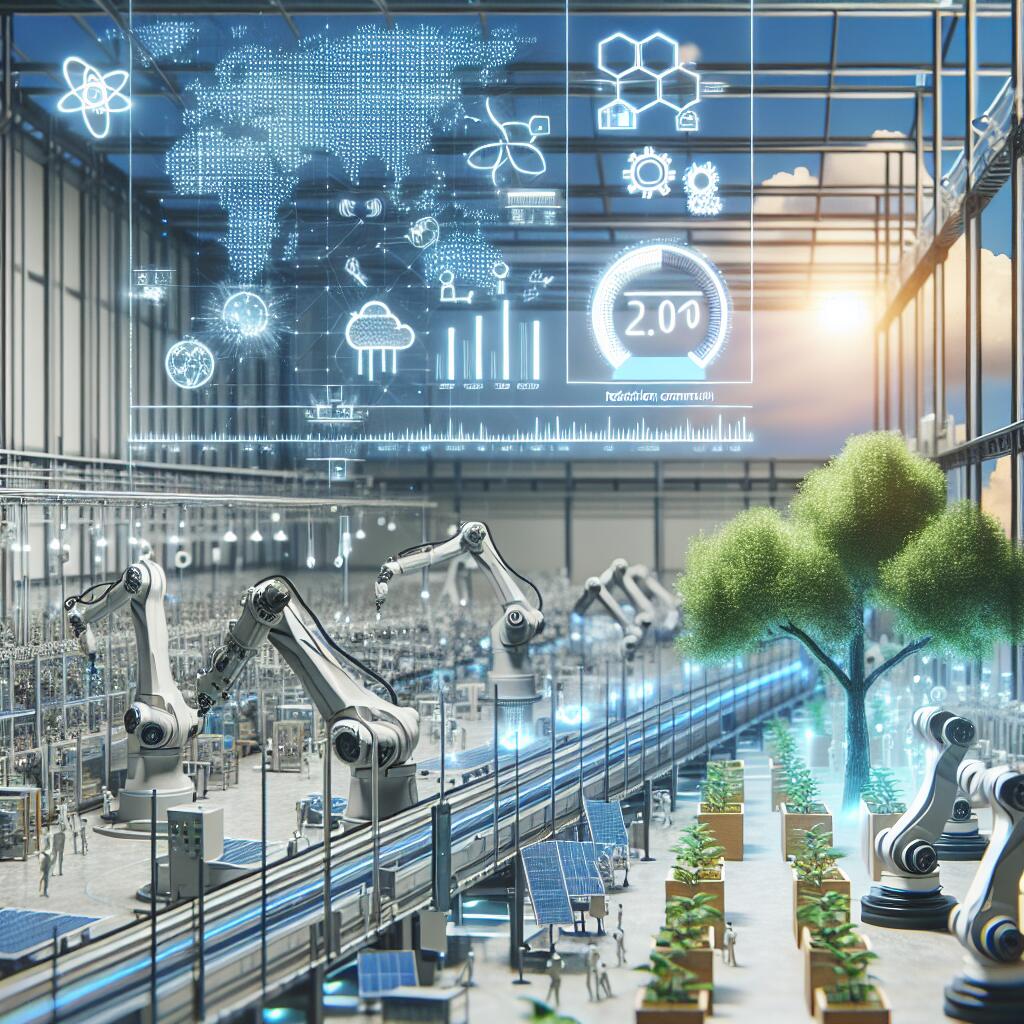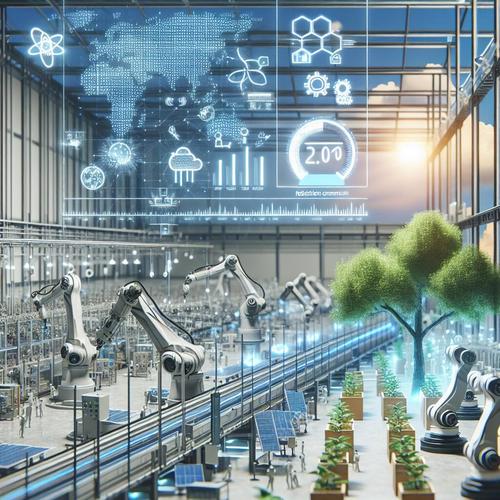
Introduction
The effects of the climate crisis on global supply chains are both profound and pervasive. As extreme weather events become more frequent and severe, manufacturers are experiencing unprecedented disruptions. Fortunately, advancements in artificial intelligence (AI) are showing promise in mitigating these impacts, offering new ways to anticipate, adapt, and respond.
The Threat to Supply Chains
Exploring the Impact
Climate change introduces a variety of threats to stable supply chains:
- Increased frequency of extreme weather: Storms, floods, and droughts can halt production and shipping, causing significant delays.
- Resource scarcity: Changes in climate can affect the availability of raw materials, leading to shortages and increased costs.
- Infrastructure degradation: Rising temperatures and sea levels can damage roads, buildings, and other infrastructure critical for manufacturing logistics.
How AI Comes Into Play
AI technologies are being employed to create more resilient supply chains through:
- Predictive analytics to forecast and mitigate potential disruptions.
- Automation of logistics and inventory management to optimize operations despite challenging conditions.
- Advanced data modeling to improve decision-making and strategic planning.
AI in Action: Real-World Applications
Several leading companies have adopted AI to safeguard against climate-related challenges in their supply chain operations. For instance, multinational technology firms and automotive manufacturers are utilizing machine learning models to predict potential delays and dynamically adjust their inventory and logistics strategies accordingly.
Benefits of AI in Managing Climate Risks
Incorporating AI into supply chain management offers several advantages:
- Enhanced predictive capabilities that allow for better preparedness.
- Increased operational efficiency by automating routine tasks and optimizing logistics.
- Reduced economic losses by minimizing downtime and improving resource management.
FAQ Section
What is predictive analytics?
Predictive analytics involves using data, statistical algorithms, and machine learning techniques to identify the likelihood of future outcomes based on historical data.
Can AI completely protect supply chains from climate impacts?
While AI can significantly enhance a company’s ability to respond to climate-related challenges, it cannot entirely prevent the physical impacts of climate events on supply chains.
Which industries are most at risk from climate-induced supply chain disruptions?
Industries that rely heavily on physical goods, such as manufacturing, agriculture, and pharmaceuticals, are particularly vulnerable to the effects of climate change on supply chains.
Summary
The integration of AI into supply chain management is proving to be a crucial strategy in combating the disruptions caused by the climate crisis. By enhancing predictive capabilities and operational efficiency, AI is not only helping secure supply chains but also ensuring business continuity amidst environmental uncertainties.
Related Resources
For more insights into how technology is shaping modern business practices, check out this Related Article. To learn more about AI’s role in industry-specific supply chain adaptations, visit “Understanding AI in Supply Chain Management”.
Thank you for reading. This discussion builds upon themes articulated in major publications and recent studies in the field of artificial intelligence and environmental science.
